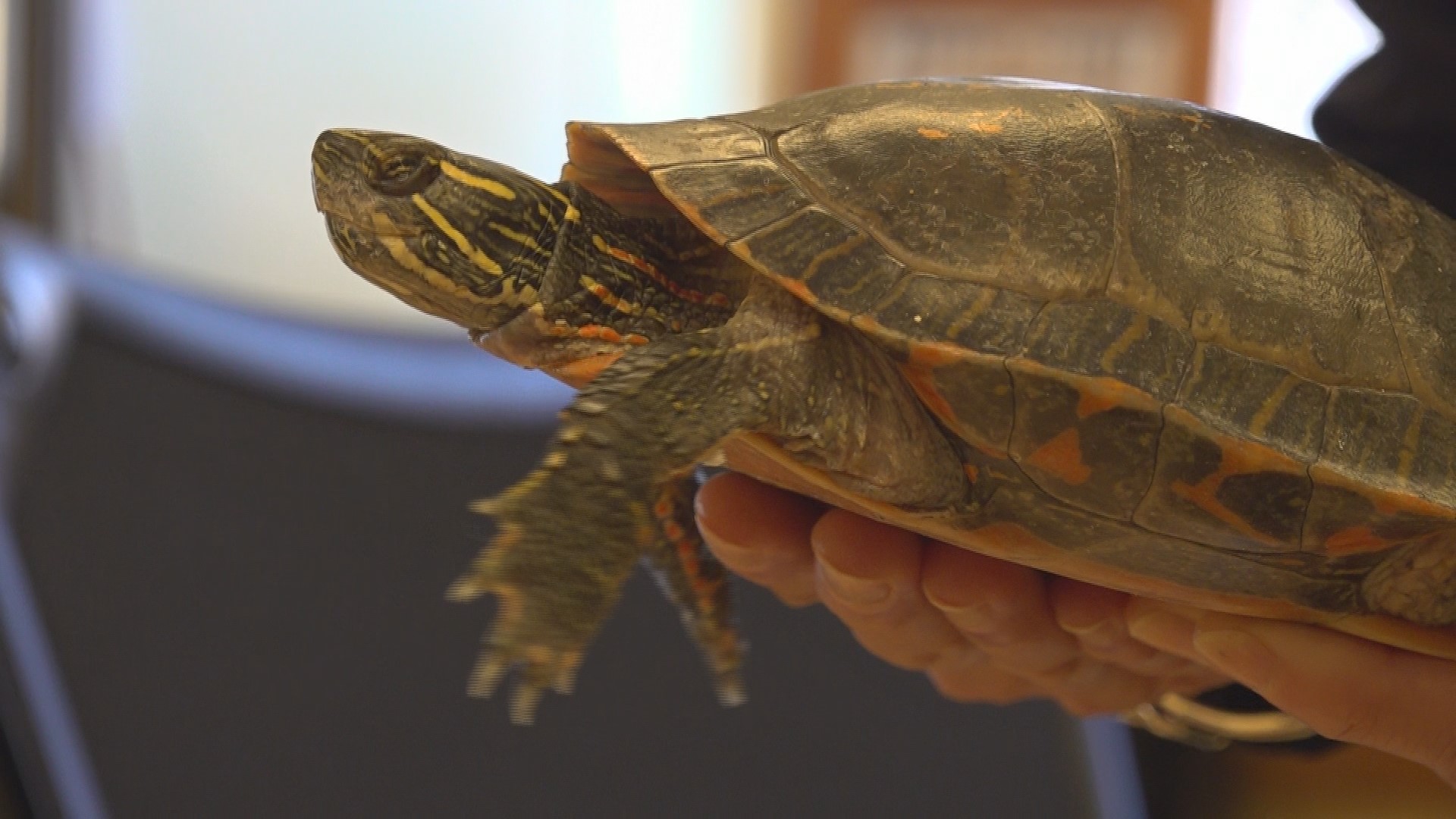AMES, Iowa — For decades, an Iowa State University scientist has been studying turtles to help learn about humans.
That professor's team has developed a faster way to study the species and potentially discover life-saving practices for people.
Dr. Nicole Valenzuela has dedicated her life to researching turtles after learning about the species' temperature dependent sex determination trait.
In turtles, the temperature of the developing eggs is what determines whether the offspring will be male or female.
"As I was studying sex determination, we got to the point that we wanted to test the function of genes,” Valenzuela said. “But we couldn't do that in turtles the way that is easy to do with, say, fruit flies or even mice."
A few years ago, she heard about colleagues who were growing something called organoids to study dog intestines.
"Organoids are simplified versions of an organ that you can grow in a petri dish, so that you can do experiments without the need of. . .live animals," Valenzuela said.
She wondered if the same could be done with turtles, whose slow growth makes them difficult to study.
"We tried it and it worked,” Valenzuela said.
Now, her team will be studying lab-grown turtle liver organoids.
The liver is the organ that allows painted-turtle hatchlings to survive freezing and a lack of oxygen for weeks to months at a time.
"By developing liver organoids, if we understand how turtles manage to do that, to survive freezing, to survive lack of oxygens, then we can inform to develop therapies for humans who suffer a stroke or heart attack,” Valenzuela said.
Stroke and heart attack victims are often injured because of lack of oxygen.
"Humans and turtles, we have genes in common, but we regulate them differently, so learning how they regulate their genes to manage surviving those conditions, that has biomedical implications," Valenzuela said.
Beyond the biomedicine impact this research could have on humans, it also aids in conservation efforts.
"Developing organoids that bypass the need of using live animals for experimentation means that we could-it opens the door to studying endangered species that you couldn't investigate otherwise, because you cannot do experiments with live animals," she said.
Valenzuela and her team are the first in the world to develop turtle organoids.
"If we can pass on, disseminate the knowledge so that others can do the same, then that will only be good for research," she said.
Phase I of the project was developing the organoids. Now, the team will enter Phase II, which is using those organoids to do hypothesis testing to test the function of turtle genes.

